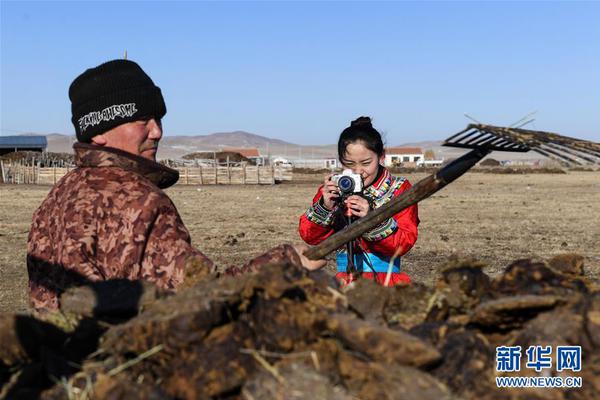In the case of anti-vaxxer activity on The Babysitter porn movieFacebook, "going viral" can be deadly.
A new investigation from The Guardianhas uncovered how Facebook is a hotbed of anti-vaxxer conspiracy theories. It went inside private Facebook groups with hundreds of thousands of members to see how anti-vaxxers peddling fake remedies to manipulate worried parents and spread conspiracy theories. And so far, Facebook isn't doing a damn thing about it.
Fake anti-vaccine science has resulted in the re-emergence of previously eliminated deadly diseases and subsequent deaths of children. Messaging supporting those fraudulent claims, with no scientific counter-information, flourishes in private and secret groups with thousands of members.
Facebook has also reportedly accepted "thousands" in advertising money from groups such as Vax Truther, Anti-Vaxxer, Vaccines Revealed, and others. It did not provide comment for the Guardian's report.
Facebook has recently focused a major operation at countering misinformation on its platform. However, the campaign has primarily been targeting fake news around elections, politics, and the inflammatory actions of foreign operatives meant to sow discord on issues like immigration and race.
But the Guardian'sreport shows that misinformation around health on the platform could be just as dire. And Facebook has not publicly focused its initiatives on this aspect of fake information.
The anti-vaccination conspiracy theory that vaccinating children can cause autism came to the fore in the early 2000s after a discredited doctor published a fraudulent and false study. The issue's championing by some celebrities, and well-organized groups on social media, caused the conspiracy theory to gain traction — and an increase in non-medical exemptions for mandatory vaccinations. As a result, there has been a 30 percent increase in the previously eradicated disease, measles. And the World Health Organization called "vaccine hesitancy" one of the top ten global threats to world health in 2019.
What should Facebook's role be in all of this?
Doctors tell the Guardian that Facebook should have the same standards for health information that pharmaceutical companies and advertisers do. At the very least, Facebook needs to do more to shut down these harmful groups, or remove misinformation, doctors and advocates say. In this case, fake news is — once again — deadly.
But as Facebook's fight against general misinformation has shown, policing harmful content is an issue with a thornier solution than simply banning accounts that spread fake news. Facebook has flagged, labeled, and down-ranked misinformation; it has banned fake accounts; it has partnered with fact checking organizations. But Facebook acknowledges that the fight against fake news is a game of cat and mouse — because it can't stop individuals from sharing false information, a clear, proactive solution remains elusive.
With the lives of children at stake, should terms of service and free expression be damned? Or should Facebook maintain its stance that it is a "platform for all ideas" — even when they result in, well, death and disease?
That slogan doesn't sound so rosy when you put it that way.
(Editor: {typename type="name"/})
 Best free ChatGPT courses
Best free ChatGPT courses
 10 Snapchat tips and tricks you absolutely should know
10 Snapchat tips and tricks you absolutely should know
 Uber president Jeff Jones just went full on #DeleteUber and resigned
Uber president Jeff Jones just went full on #DeleteUber and resigned
 Trump wants the border wall to be tall, strong and hot. Smoking hot.
Trump wants the border wall to be tall, strong and hot. Smoking hot.
 Dallas Mavericks vs. Boston Celtics 2025 livestream: Watch NBA online
Dallas Mavericks vs. Boston Celtics 2025 livestream: Watch NBA online
Best free gift card deal: Get $10 Best Buy gift card with $100 Apple gift card
 FREE GIFT CARD:As of Feb. 4, Best Buy is offering a free $10 gift card with the purchase of a $100 A
...[Details]
FREE GIFT CARD:As of Feb. 4, Best Buy is offering a free $10 gift card with the purchase of a $100 A
...[Details]
Not everyone's thrilled Cheerios gave away 1.5 billion wildflower seeds to save the bees
 Cheerios' recent campaign to give away flower seeds was both wildly popular and, no surprise, contro
...[Details]
Cheerios' recent campaign to give away flower seeds was both wildly popular and, no surprise, contro
...[Details]
BBC America is trying to keep 'Top Gear' alive with a new U.S. spinoff
 The original Top Gearmay have hit the skids without Jeremy Clarkson, Richard Hammond and James May a
...[Details]
The original Top Gearmay have hit the skids without Jeremy Clarkson, Richard Hammond and James May a
...[Details]
 In our Uber-powered world, people call upon strangers to take them wherever their typing fingers tak
...[Details]
In our Uber-powered world, people call upon strangers to take them wherever their typing fingers tak
...[Details]
GPU Pricing Update, Year in Review: Price Trends Charted
Kim Kardashian shares all the terrifying details of the Paris robbery on 'KUWTK'
 In last night's episode of Keeping Up With the Kardashians, Kim Kardashian recalls the horrifying de
...[Details]
In last night's episode of Keeping Up With the Kardashians, Kim Kardashian recalls the horrifying de
...[Details]
J.K. Rowling blasts Trump's awkward handshake moment with 1 perfectly captioned tweet
 J.K. Rowling may be able to weave magic over a seven-novel series, but she's also just as effective
...[Details]
J.K. Rowling may be able to weave magic over a seven-novel series, but she's also just as effective
...[Details]
The 11 best moments from this massive, crazy profile of Kellyanne Conway
 New York magazine just came out with a major profile of Kellyanne Conway, and, yep, it's crazy, from
...[Details]
New York magazine just came out with a major profile of Kellyanne Conway, and, yep, it's crazy, from
...[Details]
NYT Connections Sports Edition hints and answers for February 15: Tips to solve Connections #145
 Connections: Sports Editionis a new version of the popular New York Times word game that seeks to te
...[Details]
Connections: Sports Editionis a new version of the popular New York Times word game that seeks to te
...[Details]
 Ivanka Trump gatecrashed Angela Merkel's ill-fated summit with Donald Trump Friday, the latest in a
...[Details]
Ivanka Trump gatecrashed Angela Merkel's ill-fated summit with Donald Trump Friday, the latest in a
...[Details]
SpaceX will try to achieve 2 impressive feats on Monday

'Broadchurch' is the best British crime show you're not watching

接受PR>=1、BR>=1,流量相当,内容相关类链接。